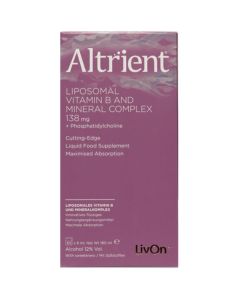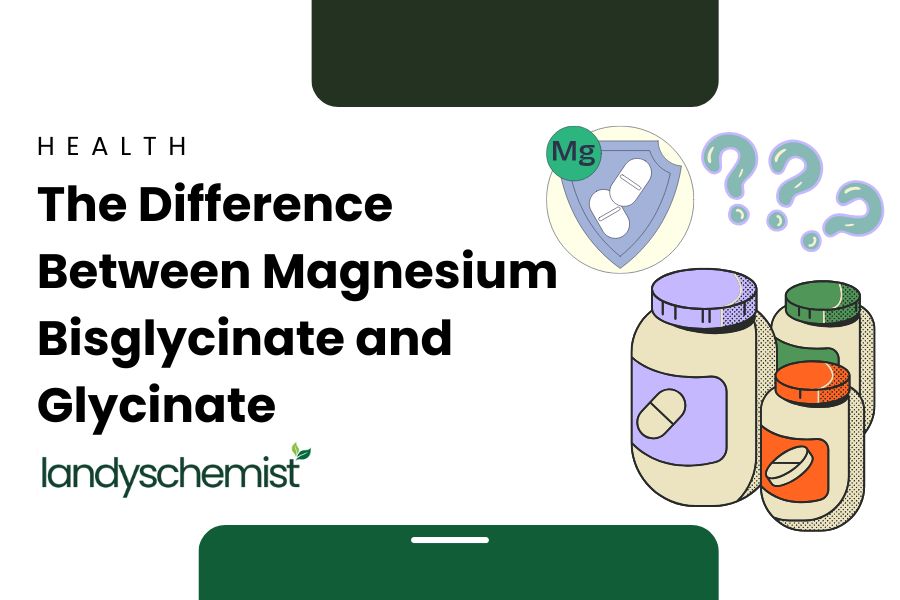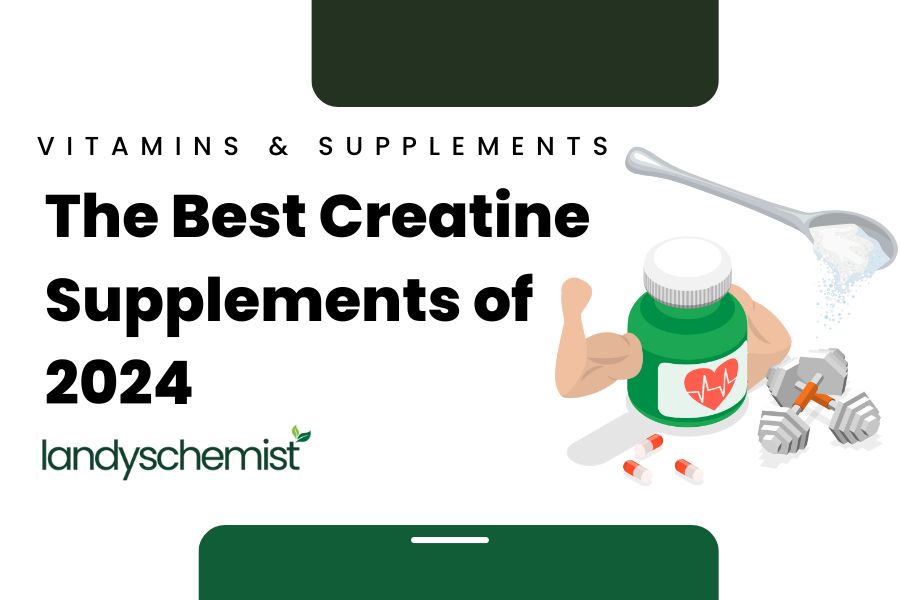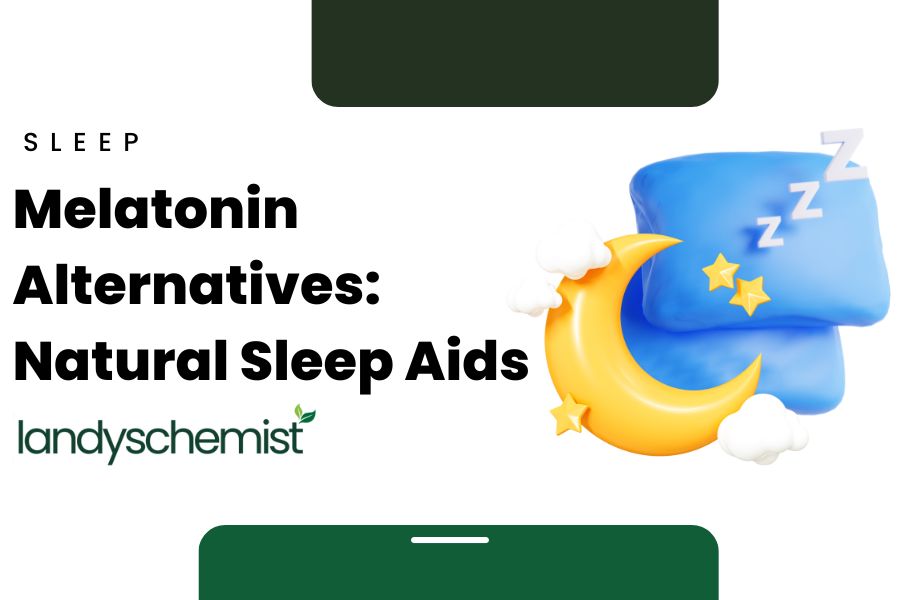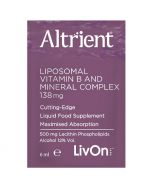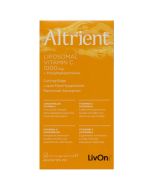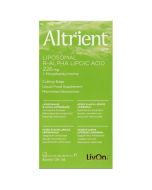
What are Liposomal B Vitamins and their benefits?
B vitamins which are also known as B-complex vitamins are water soluble nutrients. This means that they are not stored in our body and are excreted within our urine and so often need to be replenished, whether this is through food sources or supplementation.
What is the difference between B Vitamins and Liposomal B Vitamins?
Liposomal B Complex vitamins like in the Altrient B Vitamin and Mineral Complex utilises liposomal encapsulation technology (LET) which means that the B vitamins are encased with tiny phospholipid bubbles. This means that the vitamins are protected from degradation from the digestive system and reach the cells it needs to. This technology offers enhanced bioavailability (almost 100%) and absorption meaning that liposomal supplements can offer maximised benefits for our body and energy levels.
What is a Vitamin B-Complex?
A Vitamin B Complex is a mixture of 8 different B vitamins which can include:
- B1 - Thiamine
- B2 - riboflavin
- B3 - Niacin or niacinamide
- B5 – Pantothenic acid
- B6 – Pyridoxine
- B7 – Biotin
- B9 – Folate or Folic Acid
- B12 – Cobalamin or Methyl cobalamin
Why do we need B Vitamins?
B vitamins play a role in numerous enzymatic reactions within our body and help in the production of neurotransmitters, red blood cells, energy production, DNA repair and growth, and even to rebalance hormones. Deficiencies in B vitamins can be linked to neurological disorders, showing their importance in brain and nervous system health.
As B vitamins are not stored in the body, it is important to restore levels of each type of Vitamin B to allow the body to function optimally.
Certain factors can impact the amount of B vitamins that you can obtain. For example, if you are eating a vegan or plant-based diet, it is likely that you may have lower levels of vitamin B12 as you are not eating food sources that are naturally high in B12 such as eggs and dairy products.
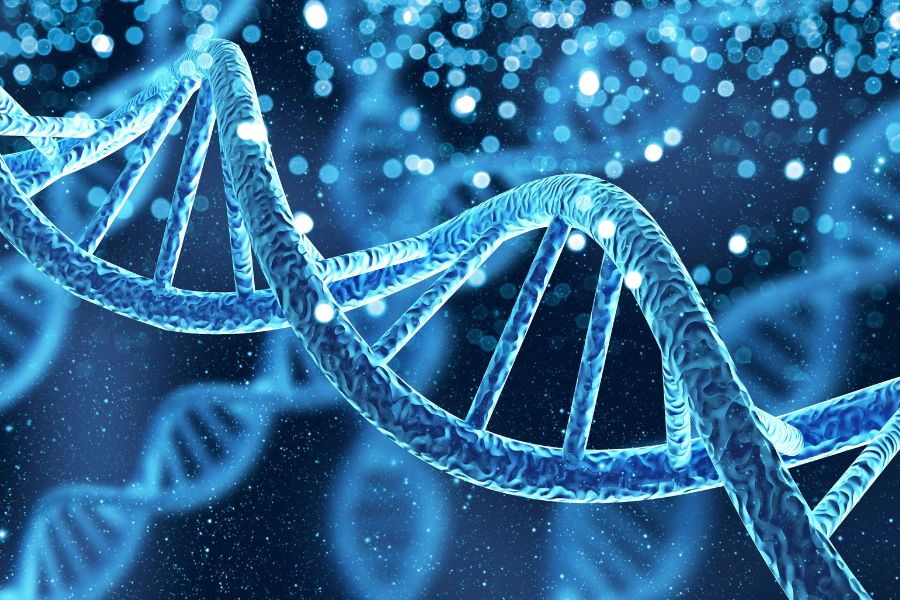
Signs of A Vitamin B Deficiency
A deficiency in B vitamins can mean that you are not obtaining the recommended daily intake of a type of B vitamin. This can mean that you can be deficient in one or more types of B Vitamin.
Common signs of a deficiency in vitamin B include feeling tired and fatigued, weak, constipation, cognitive issues such as poor concentration or memory, balance problems, tingling in the hands and even losing your appetite. Insufficient B Vitamins within the body can also cause nausea, anaemia, headaches, and irritability.
How do B Vitamins Work?
B vitamins each have different roles and functions within our body from energy production, supporting skin health, vision health and our nervous system to helping support and protect our brain:
B1 – Thiamine
Thiamine, or vitamin B1 plays a crucial role in converting food sources like carbohydrates into energy (ATP) for our body to use. This means that it plays an important role in growth and development of our cells. Vitamin B1 also plays a role in nerve function.
A deficiency in B1 can impair neurons and affect both the CNS (central nervous system – spinal cord and brain) and PNS (peripheral nervous system – nerves and ganglia).
B2 – riboflavin
Riboflavin, or Vitamin B2 helps to produce energy through the breakdown of carbohydrates, proteins, and fats. It also supports skin health, DNA repair and the growth and development of cells. Vitamin B2 also contributes to the protection of cells from oxidative stress which can cause damage.
B3 - Niacin or niacinamide
Niacin, or niacinamide is vitamin B3. This vitamin helps to reduce tiredness and fatigue through energy metabolism. B3 is a precursor to NAD, an enzyme that is essential for the production of ATP. Niacin also helps to promote skin health through its anti-inflammatory properties and aids with DNA repair and cell growth, which aid smoothing skin texture.
B5 – Pantothenic acid
Pantothenic acid, or vitamin B5 helps to produce coenzyme A. This is a chemical that helps initiate the Krebs cycle which is an important process which produces carbon dioxide and ATP. B5 also helps to produce red blood cells which is important for the transport of oxygen around the body.
B6 – Pyridoxine
Vitamin B6 plays an important role in supporting and protecting our cognitive health and the neurons which transmit signals to and from the brain. It also helps to lower levels of homocysteine which has been associated with cognitive decline. B6 also contributes to the reduction of tiredness and fatigue, aiding in energy metabolism.
B7 – Biotin
Biotin, or Vitamin B7 helps to support and strengthen the skin, hair, and nails. It also plays an important role in the functioning of enzymes like carboxylase which support metabolic processes including glucose and fatty acid production for energy.
A deficiency in biotin can lead to brittle hair and nails, scaly skin as well as imbalanced blood sugar levels.
B9 – Folate or Folic Acid
Folate, or Vitamin B9 is important for DNA and RNA production as well as energy metabolism. This is essential for cell growth and repair. Folate is particularly important with B12 to ensure proper development of red blood cells which helps to transport oxygen around the body. Adequate folate levels are crucial for healthy development of foetuses too, ensuring the brain and spinal cord develop properly.
B12 – Cobalamin or Methyl cobalamin
Studies have shown that vitamin B12 deficiencies can be linked to lower energy levels. B12 or cobalamin is important for proper development of red blood cells, supporting the nervous system and reducing tiredness and fatigue. It helps to transport oxygen around the body as well as help release energy through the metabolism of carbohydrates.
What is the best form of Vitamin B?
Vitamin B can come in the form of capsules, liquids, and liposomal supplements. Each have their own benefits and come down to personal preference and which suits your body more, however we would recommend liposomal supplements.
The majority of B complex supplements do not retain in the body. As B-vitamins are water-soluble, most will be excreted within our urine. Liposomal supplements provide highly bioavailable B vitamins which are able to be delivered within our cells with high bioavailability and absorption rates. The liposomal complex can by-pass the digestive system which limits the amount of gastrointestinal discomfort that many ordinary supplements can cause.
What is the best B Vitamin and Mineral Complex?
We recommend Altrient Liposomal Vitamin B and Mineral Complex due to it utilising liposomal encapsulation technology. This technology helps to deliver b vitamins and minerals directly to our cells without causing digestive discomfort. It also features additional minerals like Selenium and Zinc which help to support hair, skin, and protect our cells from oxidative stress.
These supplements are free from GMO, artificial colours, and flavours, are non-acidic and are gentle on the stomach making them a great supplement to help boost your energy levels and support your brain health.
Summary
- Liposomal B complex vitamins utilise liposomal encapsulation technology (LET) to encase B vitamins within tiny phospholipid bubbles.
- Liposomal supplements mean that the nutrient is protected from digestive degradation, offers enhanced bioavailability and high absorption rates.
- B-Complex vitamins are 8 crucial B vitamins (B1, B2, B3, B5, B6, B7, B9, B12) which play roles in energy production, DNA repair and growth, and neurological functions.
- Liposomal supplements like Altrient Liposomal Vitamin B and Mineral Complex are recommended due to their high bioavailability and absorption rates, as well as being gentle on the stomach.
By Saarah Mengrani, MSc Biotechnology

